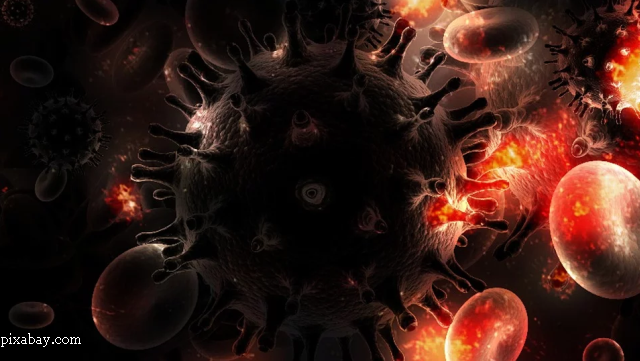Managing HIV-AIDS in Romania
HIV-AIDS continues to be a health issue all over the world

România Internațional, 15.07.2020, 14:00
HIV-AIDS continues to be a health issue all over the world. This affliction has already killed millions worldwide. Even though a lot of progress has been made, there is still no cure to be found. Across the world, as of 2018, 37 million people were HIV positive, with 16,000 cases registered in Romania. An average of 700 new cases a year are identified, and unfortunately more than half the cases that are uncovered are in advanced stages. In spite of this, the life expectancy of people carrying the virus has gone up in places where national programs were implemented. Romania has a latest generation national program of treatment using anti-retroviral medication, but that does not mean that there is no need for education and prevention programs, especially targeted at vulnerable and disadvantaged groups. Horatiu Moldovan is an undersecretary in the Ministry of Health:
“Our aim is to keep Romania at the stage of low HIV-AIDS risk country. At the Ministry of Health we are running a national program that started in 1985. In 2018, the budget for the program was 303 million lei. In 2019 it went up to 328 million lei. It is a small increase, 9%, and at present we have in care 13,000 patients. In the meantime, the Health Ministry has issued a strategic national plan for the supervision, control, and prevention for HIV-AIDS for the 2019-2021 period. It is a public policy strategic document, it has been finalized, but under the previous leadership term it was not approved and implemented.
Unfortunately, according to HIV positive people, stigma and discrimination are harder to cope with than the disease itself. They are hiding their condition, which actually results in its spreading. Here is Horatiu Moldovan:
“In my experience as a cardiologist, I was often in the position to operate on infected people. What was more difficult than operating them was to refer HIV positive patients to my surgeon colleagues, and to see their resistance to getting involved in such cases. It is not enough for a surgeon to agree to operate on a patient, it is necessary for the institution to accept them, because the medical procedure chain is longer. There is a fear towards these patients, which is why we are trying to reduce these difficulties, at the level of the Health Ministry, so that all these patients may get the benefit of medical and surgical care.
Another problem that needs solving is the discontinuity in treatment caused by difficulties in supplying medication. Romania meets only partially the targets for continuous anti-retroviral treatment, 67% of patients are getting specific treatment, while 54% are at the stage of viral suppression, meaning they can no longer transmit the virus. Here is Professor Adrian Cercel with the Matei Bals National Institute for Infectious Diseases:
“Today’s HIV patient is nothing like the HIV patient of 1985. Today you take a pill with 3 or 4 ingredients and you lead an absolutely normal life. Obviously, many things can pop up in normal life, but they are no longer strictly related to HIV. At the same time, HIV is not something that just gets fixed. And that is on us, people, because we do not protect ourselves… If we don’t protect ourselves, we should take on the risk. Romania has had, and still has, the benefit of a wonderful program, including patient support.
This year, HIV-AIDS patients in Romania may receive their medication straight at home. This is beneficial, physicians say, especially for active patients who hold down jobs, because now they have to take time off from work to go get their treatment at a hospital every month. In addition, the HIV-AIDS program in Romania is very well monitored. Right now it is well known where patients live, or if they change addresses, therefore a home delivery system would be easy to implement, according to Adrian Cercel:
“The trend in Romania is great: the number of infections has gone down, and it continues to do so. People who are registered as HIV positive are well monitored, and are directed towards regional centers, therefore the number of new infections has gone down. Romania is the only country in the EU that registers each patient by name, surname, and personal ID number, and therefore we have a good image of what is going on. In 2018, all the trends were down going. We still have problems with pregnant women who refuse prevention measures for the expected newborn. But when women refuse them, we register all the babies born to HIV positive women, and we monitor them.
Experts estimate that in 2020 we will have about half a million HIV infections globally, and in 2030 the number is expected to drop to 200,000.






























